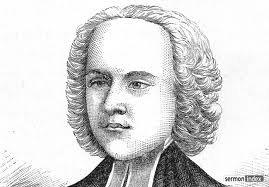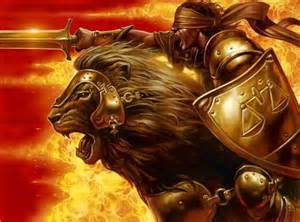Charles Simeon set the standard for us in dealing with controversial issues.
IT’S WORTH CONSIDERING
In the days when biblical and military leaders like William Wilberforce and William Pitt
were making headlines in Great Britain, a lesser known servant of the lord was making his mark. Charles Simeon was an evangelical leader in the Anglican Church who used his position and wealth to further the spread of the gospel during a difficult time in church history. He was a self-taught pastor who rose at four each morning to devote hours to prayer and Bible study. His goal was to bring out what the Bible really said, and not repeat what others imagined it said.
As I recently read about his life, what stood out was a simple conversation he once had with John Wesley. At that time, the great controversy over doctrine centered around the divergent understandings between John Wesley the Arminian and George Whitefield the Calvinist. The division still exists today as believers argue over the place of free will and God’s sovereignty, often embracing one at the exclusion of the other. As the conversation shows, the differences may not be as polar opposite as we imagined:
“Sir,” said Simeon to Wesley, “I understand that you are called an Arminian; and I have been sometimes called a Calvinist; and therefore I suppose that we are to draw daggers. But before I consent to begin the combat, with your permission, I will ask you a few questions, not from impertinent curiosity, but for real instruction. Pray, Sir, do you feel yourself a depraved creature, so depraved that you would never have though of turning to God if God had not first put it into your heart?”
“Yes, I do indeed,” replied Wesley.
“And do you utterly despair of recommending yourself to God by anything you can do; and look for salvation solely through the blood and righteousness of Christ?”
“But Sir, supposing you were first saved by Christ, are you not somehow or other to save yourself afterwards by your own works?”
“No, I must be saved by Christ from first to last.”
“Allowing then that you were first turned by the grace of God, are you not in some way or other to keep yourself by your own power?”
“No.”
“What, then, are you to be upheld every hour and every moment by God, as much as an infant in its mother’s arms?”
“Yes, altogether.”
“And is all your hope in the grace and mercy of God to preserve you unto his heavenly kingdom?
“Yes, I have no hope but in him.”
“Then, sir, with your leave, I will put up my dagger again; for this is all my Calvinism; this is my election, my justification by faith, my final perseverance: it is, in substance, all that I hold, and as I hold it: and therefore, if you please, instead of searching out terms and phrases to be a ground of contention between us, we will cordially unite in those things wherein we agree.”
AS I SEE IT
The point is obvious. Charles Simeon was a unifier, not a divider. He clearly grasped the idea of unity that Paul wrote about so often, as in Ephesians 4. Charles Simeon serves as a picture of such phrases as “unity of the Spirit,” “bond of peace,” and the “unity of the faith.” He serves as a model for all of us. How do we compare with him? What kind of spirit do we bring with us- one of division of unification? One of criticism or encouragement?
the idea of unity that Paul wrote about so often, as in Ephesians 4. Charles Simeon serves as a picture of such phrases as “unity of the Spirit,” “bond of peace,” and the “unity of the faith.” He serves as a model for all of us. How do we compare with him? What kind of spirit do we bring with us- one of division of unification? One of criticism or encouragement?
Returning to the conversation above, I see another powerful lesson. Those in both “camps” can find Scripture that seems to support their position. God, however never contradicts Himself. If something is confusing, the problem is in our limited understanding, not God’s Word. Consequently, I have chosen to focus on simply being obedient to what God has called me to do. Since I don’t know who has been “chosen,” I must approach everyone as a sinner in need of God’s grace, just like me. God will sort out the rest.
This is actually a sequel to a previous article.
ON THE LIGHTER SIDE
A conscience is what hurts when all your other parts feel so good.








Leave A Comment